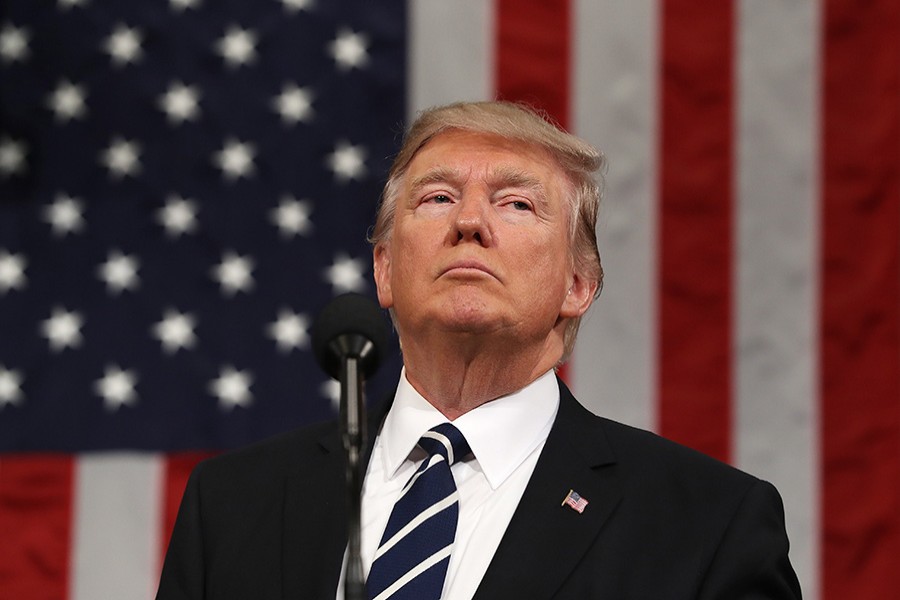
Published :
Updated :

The United States has formally notified the United Nations of its intention to withdraw from the Paris Agreement.
The notification begins a one-year process of exiting the global climate change accord, culminating the day after the 2020 US election.
The agreement brought together 188 nations to combat climate change.
Announcing the plan last month, US Secretary of State Mike Pompeo said the agreement had imposed an "unfair economic burden" on the United States.
The Paris agreement committed the US and 187 other countries to keeping rising global temperatures below 2C above pre-industrial levels and attempting to limit them even more, to a 1.5C rise.
The decision to withdraw - taken by President Donald Trump - made the US the world's sole non-signatory and prompted high-level efforts by the European Union to keep the agreement on track.
A report issued in December 2018 by the Institute of International and European Affairs suggested President Trump's decision to leave had done "very real damage" to the Paris agreement, creating "moral and political cover for others to follow suit".
The report cited the examples of Russia and Turkey, which both declined to ratify the deal despite signing.
The US issued its formal notification on the first day it was possible to do so, firing the starting gun on the long process of extricating the country from the 2015 agreement. The withdrawal is still subject to the outcome of next year's US presidential election - if Mr Trump loses, the winner may decide to change course.
But scientists and environmentalists fear the effect the Trump administration will have on climate protections in the meantime. It has conducted what critics have called a seek-and-destroy mission against US environmental legislation.
Mr Trump promised to turn the US into an energy superpower, and has attempted to sweep away a raft of pollution legislation to reduce the cost of producing gas, oil, and coal. He characterised former US President Barack Obama’s environmental clean-up plans as a war on American energy.
Announcing his decision to withdraw, last year, Mr Trump said: "I was elected to represent the citizens of Pittsburgh, not Paris. I promised I would exit or re-negotiate any deal which fails to serve America's interests."
But reports suggest the Trump administration made no effort to renegotiate the Paris agreement, waiting instead until the first possible day to exit.
The US contributes about 15 per cent of global emissions of carbon, but it is also a significant source of finance and technology for developing countries in their efforts to fight rising temperatures.
What was agreed in Paris?
Climate change, or global warming, refers to the damaging effect of gases, or emissions, released from industry and agriculture on the atmosphere. The Paris accord is meant to limit the global rise in temperature attributed to emissions.
Countries agreed to:
- Keep global temperatures "well below" the level of 2C (3.6F) above pre-industrial times and "endeavour to limit" them even more, to 1.5C
- Limit the amount of greenhouse gases emitted by human activity to the same levels that trees, soil and oceans can absorb naturally, beginning at some point between 2050 and 2100
- Review each country's contribution to cutting emissions every five years so they scale up to the challenge
- Enable rich countries to help poorer nations by providing "climate finance" to adapt to climate change and switch to renewable energy


 For all latest news, follow The Financial Express Google News channel.
For all latest news, follow The Financial Express Google News channel.